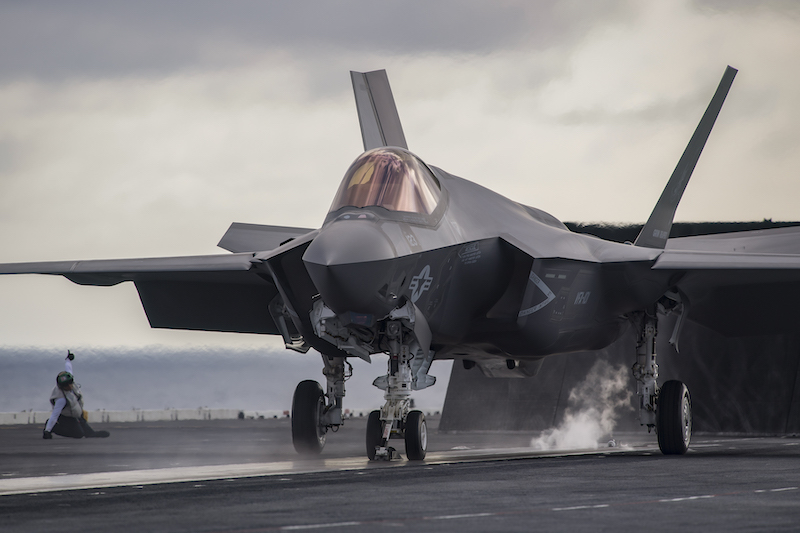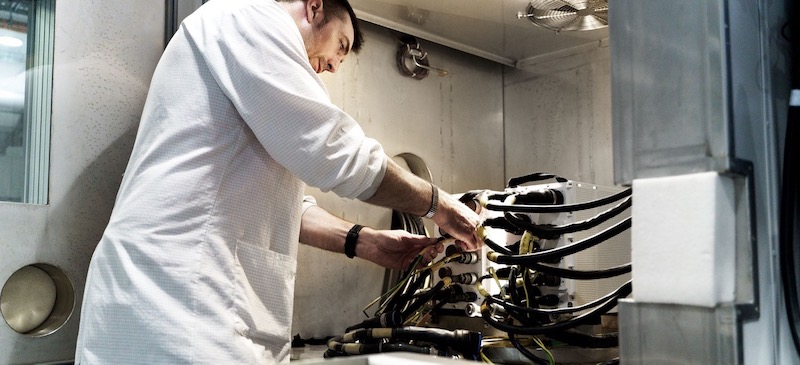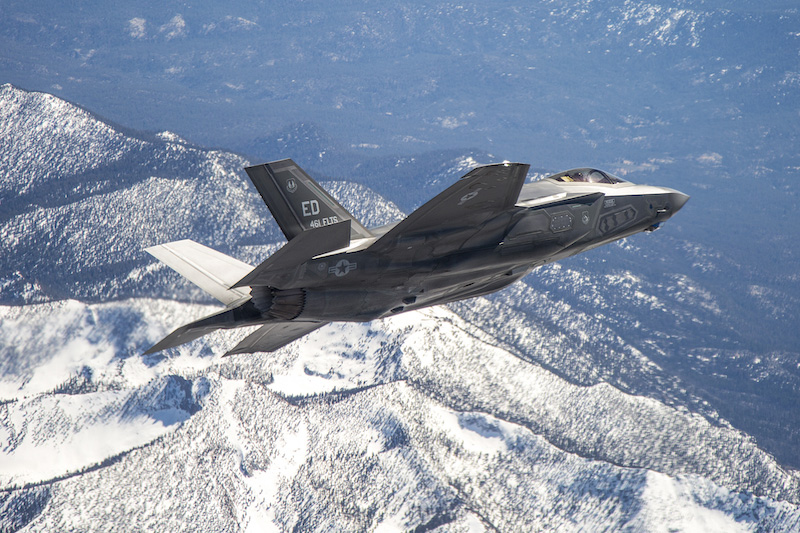The Air Force’s chief of staff called it “a computer that happens to fly.” An Air Force squadron commander called its pilots “quarterbacks in the sky.” The F-35 Lightning II, manufactured by Lockheed Martin, can reach supersonic speeds and may be the world’s stealthiest fighter plane. For pilots, its advanced electronic systems are what really set it apart. Designed to replace most of the United States’ aging fighter fleet, the F-35 comes equipped with a constellation of sensors and avionics that assemble a remarkably detailed picture of conditions in and around the aircraft.
GE Aerospace supplies eight of those systems, including electrical power management, aircraft memory, remote interface units for the fuselage and missiles, and engine-monitoring technology. This spring, GE Aerospace signed a four-year performance-based logistics (PBL) contract with Lockheed Martin to maintain and repair this equipment on F-35 aircraft around the world.

For Lockheed Martin, as well as for the Air Force, the Navy, and the Marine Corps, the benefits of a PBL are obvious: a continuous baseline of aircraft availability at a fixed price. In return, GE will manage operations to meet the customer’s needs. “Lockheed Martin can focus on its most pressing priorities, and we’ll focus on the systems repairs,” says Chris Newman, GE’s F-35 senior program manager, based at the company’s plant in Cheltenham, England. The team at Cheltenham coordinates logistics for F-35 services and works with GE’s other F-35 facilities — plants in Long Island, New York, and Grand Rapids, Michigan, as well as repair and maintenance depots in California, Georgia, and Utah. When a GE electronic component needs repairs, analysts at Cheltenham will route the part to the most appropriate site based on capacity, proximity, and expertise. “You have to form good relationships,” he says. “Our team has worked hard to collaborate with our customer over the last five years, and we have created a strong partnership.”

Newman and his team are also taking advantage of another benefit of PBLs: an opportunity to streamline. “This agreement requires our operations to be as efficient as possible,” Newman says. “It’s up to us to improve repair performance, reduce turnaround times, and give the customer exactly what they need.”
That challenge is tailor-made for lean, the management philosophy at the heart of GE’s turnaround. Lean’s core purpose is to eliminate waste through practices like action workouts — weeklong in-person gatherings dedicated to improving operations. Newman and his team have run action workouts at the Long Island and Cheltenham facilities to prepare. “When you take a hard look at yourself, you see that your processes are not perfect,” he says. “The focus on being better for the customer is really what the PBL is about.” GE Aerospace in the UK was also recently recognized as part of an elite group of top-performing suppliers by Lockheed Martin Aeronautics for 2022 as a recipient of the Mission Focused Award.

Newman and his colleagues know that maintaining the world’s F-35 fleet will be a huge undertaking: More than 900 F-35s are in operation in 10 nations’ militaries, and the U.S. plans to buy some 2,500 more over the next 20 years to replace most of the crewed fighters flown by the U.S. Air Force, Navy, and Marines. After consulting algorithms that predict how often each system will need repairs, Newman and his team are shoring up their supply chain and training staff to meet the coming demands. “I think Lockheed is feeling the improvements we’ve made,” he says. “We’re turning the product around quickly and getting it right back out to where it's needed. That allows pilots across the globe to get back in their aircraft — anytime, anywhere.”





